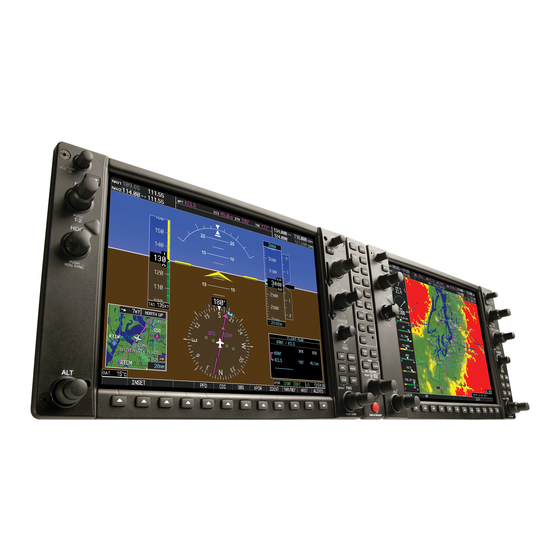SAMPLE SYSTEM OPERATION/FAILURE MODE SCENARIOS FOR FAA-S-8081-4D
The following table gives recommendations on simulating various partial panel configurations by pulling circuit breakers.
NOTE: Due to the differences in autopilot interfaces, the recommendations for autopilot engagement are generic and may
not be suitable for all aircraft.
Failure to Be Simulated
Loss of AHRS and ADC*
(simulates loss of all primary flight instru-
ments)
Loss of AHRS
(attitude and heading)
Loss of ADC
(airspeed, altitude and vertical speed)*
Loss of PFD
NOTE: * When the ADC has failed, pressure altitude data is no longer available to the transponder. As a result, the transpon-
der loses its Mode C (i.e., altitude reporting) capability. Therefore, without the required coordination with the appropriate
air traffic control facility, failing the ADC should be avoided in Class B and C airspaces, or within the Mode C veil of Class B
airspace.
190-00368-02 Rev. A
Examiner Action
Pull AHRS and ADC circuit breakers.
Pull AHRS circuit breaker.
Pull ADC circuit breaker.
Pull PFD circuit breakers.
This action prevents the tuning of the COM
1/NAV 1 frequencies; COM 2 must be tuned to
the proper frequency and must be in use.
Garmin G1000 Guide for Designated Pilot Examiners & Certified Flight Instructors
Applicant Action
Control the aircraft by reference to the backup
attitude, altitude and airspeed indicators; en-
gage the autopilot if it is rate-based and has
its own gyro source in roll mode.
Control the aircraft by reference to the backup
attitude indicator; engage the autopilot if it is
rate-based and has its own gyro source in roll
mode.
Control the aircraft by reference to the PFD at-
titude presentation and the backup airspeed
and altitude indicators; engage the autopilot
in roll, HDG, or NAV mode.
Control the aircraft by reference to the MFD in
reversionary mode (this mode also removes all
moving map presentations).
9

